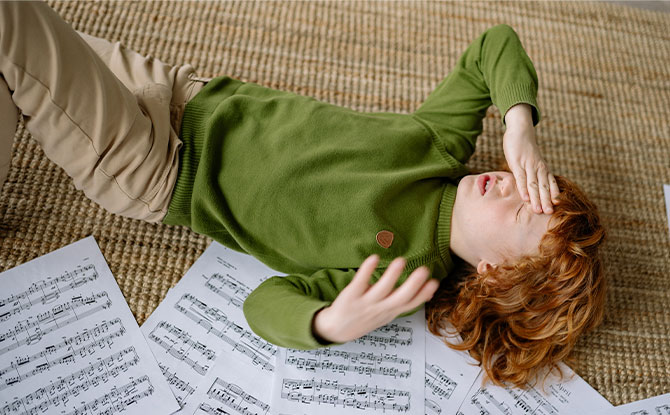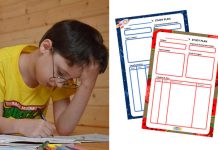
Do you find your child feeling frustrated easily over inconveniences, challenging tasks or when facing problems?
Issues such as the inability to solve a problem, hit a ball with a racket or stack some blocks might result in an emotionally charged response. Tears, baring of teeth, banging of furniture, throwing of toys, stamping of feet, clenching of fists may be what the frustration looked like.
Let’s talk about frustration tolerance and how we can encourage our children to practise it.
What is Frustration Tolerance?
In short, frustration tolerance is the ability to withstand stress.
Developed by psychologist Albert Ellis, low frustration tolerance is part of having irrational beliefs and the avoidance of stress causes behavioural and emotional problems.
How do we let our children have higher frustration tolerance, to think of giving up less and have the grit to overcome challenges and stressful situations?
Here are some tips.
Helping Our Children Increase Frustration Tolerance

Process the frustration
It is ok to be frustrated, it is only human to feel the emotion. Help the child to name the emotion, the reason for the emotion and specify boundaries if necessary.
“I know you are very angry because the tower keeps toppling. It is difficult to build it and upsetting when it topples.”
“Repeat after me, I feel frustrated it is difficult to build this tower.”
If the child is frustrated and taking it out on a pet or a sibling, that needs to be addressed. If furniture or equipment is being destroyed in the process, such behaviour needs to be stopped as well.
Teach your child to cope with Big Feelings

Big feelings are tough for little ones, they can get overwhelming even for adults.
Help your child find a coping mechanism.
Counting, breathing slowly, breathing through the mouth, walking away to another activity, picking up a favourite book, listening to a piece of music
Help the child to calm down by encouraging deep breaths, listening to a song or positive self-talk. Then try the task again.
Mistakes and Failures are part of learning
Similar to developing a growth mindset, we can remind our child that mistakes and failures are part of learning. In fact, we can only progress when we learn from our mistakes and errors. The great thing about failing is the opportunity to get up again and try, just like how we learnt to walk or cycle.
It is difficult for some children to let go, especially perfectionist ones. Mistakes are perfect in helping the child to get better at a skill. They also help our brains to grow.
Scaffold the Learning and Provide Aids (if Welcome)
Parents and caregivers can also scaffold the learning and make some observations that may help the child to progress. Refrain from jumping to their aid, but allow the children to try again and again. If you are asked to help, don’t give the solution. Perhaps share your observations and let your child think of the various solutions and alternatives.
If the challenge is too great, break down the problem in steps and let the child try to solve each step first. This also helps build confidence and gives the child the courage to tackle the seemingly huge challenge.
Focus on the process, celebrate the attitude not the outcome
Celebrate with the child for having great attitudes and remind them of the satisfaction from hard work. Focus on the process the child went through. It is the long arduous journey of hard work that is rewarding. While it doesn’t necessarily result in a success story, the dispositions the child have would equip him or her for more hurdles and obstacles ahead.
Perhaps it is a classic Asian mentality to chase grades and tangible achievements. Look past that and guide your child to relish the value of grit, hard work and the beauty of trying again and again yet never giving up. This would redirect the frustration to a productive outcome.
Improve Frustration Tolerance, Slowly but Surely
As a parent who faces low frustration tolerance in my child, it is a lesson for me as well to manage my child’s frustration and my own annoyance with his lack of grit. This is an opportunity and a privilege for me to help build positive traits in him that no one else can.
Let’s work on chipping off the mammoth task of improving frustration tolerance in our children and ourselves. Slowly and surely, we can channel the frustration towards resilient spirits.

















